#islamic literature
Text
"Attar is one of the greatest poets of the Persian language. Nonetheless, his popularity - both in Iran itself and in the West (Goethe, for example, touched on him only briefly in his West-Eastern Divan) - does not match that of Ferdowsi (d. 1020), Omar Khayyam (d. c.1132), Rumi, Saadi (d. 1292) or Hafiz (d. 1389); occasionally he is even omitted from the line of seven Persian poet-princes in favour of Jami (d. 1492). One possible reason for this is that the composition of his poetry is too artful, too complex to be effective in the town squares and teahouses, while at the same time, many of his stories and figures may seem too coarse, too folk-like and too sarcastic to be at the forefront of the high spiritual literature cultivated at courts in former times and in middle-class households today. Attar’s poetry, on the other hand, is far less stilted than that of most Persian poets but, rather, unadorned, clear and immediate. The pain it expresses is not spiritually filtered as in Rumi, far less metaphysically elevated than in Saadi, and not sublimated into pleasure as in Omar Khayyam - where Hafiz turns the earthly into the mystical, Attar strips mysticism down to its leaden, earthly foundation in order to scream his longing to the heavens."
--Navid Kermani, The Terror of God: Attar, Job and the Metaphysical Revolt
.
I asked my professor which masnavi (Persian epic poem) he thinks is the greatest ever written. He replied, Rumi's Masnavi (the only masnavi Rumi wrote). Shock. How can there be a masnavi greater than Attar's Conference of the Birds? (There are 4 authentic Attar masnavis; sadly, as far as I know, Conference of the Birds is the only one that has been translated into English.) Reading through Rumi's masnavi I think I am still team Attar. It's Attar's coarseness I love--he is a poet of mad saints and freaks. In Rumi's Masnavi, the absence of a frame story and the pious/didactic tone is somewhat of a barrier for me. The pieces don't quite hang together, whereas Attar's Conference of the Birds is intricately structured--there are stories within stories within stories, each bird with its idiosyncratic psychology--a narrative arc that mirrors the journey of the soul across the seven valleys. But maybe there is a difference between reading a sufi text for its poetry rather than religious instruction, I don't know.
#attar#Rumi#persian poetry#poetry#literature#masnavi#Navid Kermani#islam#islamic mysticism#islamic literature#mysticism#sufism#sufi literature
184 notes
·
View notes
Text
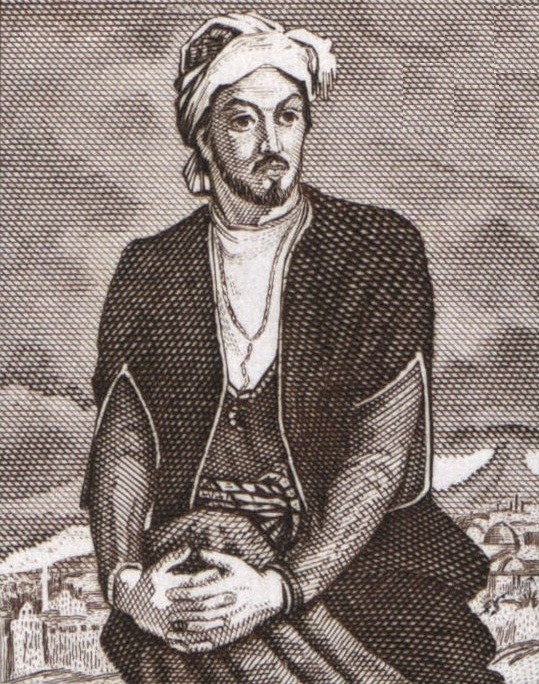
“Your resplendent features are the source of light. Your sweet words like springs of farhat al-Jana.
Sun and moon and Jupiter in heaven high Draw their light from your fair face's taper bright.
By your charming eyes Harut was with Marut Hung in Babylon's deep well. It served them right!
To your feet the heavens humbly bow their head. Mala'ikah are your guardians all day and night.
Al-Shaytan ran away, refused to honour you. So he bears a yoke and cursed is his plight.
Essence of Creation is the precious pearl And of this fair pearl you are the essence bright.
It's the breath of Isa brings the dead to life, But your breath raised Khizr and Isa to the light.
Your face is a looking-glass for the devout And in it he takes continual delight.
In the sea of love Nasimi is a pearl. He who shuns the sea is either fiend or sprite.”
-Seyid Ali Imadaddin Nasimi.
#books#history#literature#religion#theology#mysticism#esotericism#religious#sufi#sufism#hurufism#islam#shia#sunni#Sunnis#Shiism#islamic theology#islamic literature#islamic#sunni muslim#sufi Islam#sufi wisdom
7 notes
·
View notes
Text
Current poetry reading is the Translator of Desires (Tarjumān al-ashwāq), a book of 61 Arabic poems by the Andalusian poet-scholar Muhyiddin Ibn 'Arabi (1165-1240), translated into English by Michael Sells. They explore a complex nexus of erotic desire and Islamic/Sufi mysticism through the lens of Ibn 'Arabi's fluctuating relationship with his muse Nizām ("Harmony"). Extraordinary stuff, though I suspect I would appreciate it much more fully if I were better versed in the cultural and religious milieu from which it arose.
33 notes
·
View notes
Text

I bought this book a while ago and finally got a chance to read it.
A truly inspiring read from my favourite author
#islam#muslim#inspiration#islamic quotes#religon#bookaholic#books#islamic literature#muslim women#naima robert
4 notes
·
View notes
Text
does anyone have any islamic literature recommendations they'd like to share, I wanna read some more, but I dont know where to start
5 notes
·
View notes
Text
With Your face your hair is in such harmony
I'm afraid I'll start blaspheming out of envy:
O graceful One, I'll bow to that breeze that
from Your face takes Your hair, completely!
Rabi'a Basri, translated by Paul Smith
#poetry#rabi'a basri#rabi'a the mystic#sufi poetry#sufism#religious poetry#spiritual poetry#islamic literature#female poets#female mystics#i wonder if smith meant something by not capitalizing the second 'your' in the first line...? or was it an editing error lol#either way sic erat scriptum
2 notes
·
View notes
Text
0 notes
Text
You deserve to be surrounded by the souls who bring out your soft side — not your survival side.
#love#life#relationship#friendship#fellings#love quotes#islamic life#daily quotes#beautiful words#txt#thoughts#lines#literature#words#writers on tumblr#qoutes#quotes#post on tumblr#quote#writing inspiration
3K notes
·
View notes
Text
আদাবুল মুফরাদ PDF | কিতাবুল আদব PDF | Adabul mufrad bangla
আসসালামু আলাইকুম! সবাই কেমন আছেন? আশা করি, ভাল আছেন। প্রিয় পাঠক-পাঠিকা! আপনারা অনেকে গুগলে সার্চ করেন, আদাবুল মুফরাদ PDF | কিতাবুল আদব PDF | Adabul mufrad bangla
আদাবুল মুফরাদ বা কিতাবুল আদব
ইমাম বুখারী (রহঃ) এর সংকলিত সহীহ বুখারী শরীফ এরপর ইমাম বুখরির যে কিতাবটি মুসলিম উম্মাহের কাছে সর্বাধিক জনপ্রিয় হচ্ছে। তা হলো ‘আদাবুল মুফরাদ’ বা কিতাবুল আদব।
আদাবুল মুফরাদ বা কিতাবুল আদব নিয়ে কিছু কথা
কিতাবুল আদব মূলত শিষ্টাচার সংক্রান্ত হাদিসের সংকলন। ইসলামি সমাজে মু’আমিলাত বা পারস্পরিক সম্পর্কের উপর অত্যন্ত গুরুত্ব দেওয়া হয়েছে। যারা ইসলাম প্রচারে নিয়োজিত তাদের শিষ্টাচারের বা আদবের উপর গুরুত্ব দেওয়া হয়। তাদের ব্যবহার, আচার-আচরণ, নৈতিকতা ইত্যাদি দেখেই মানুষ ইসলামের প্রতি আকৃষ্ট হয়। যেসব নসিহত প্রদান করা হয় এবং সেসব অনুযায়ী তা অর্জনের শিক্ষা দেওয়া হয়। তাই মানব সভ্যতার বিকাশেও শিষ্টচারের বা আদবের ভূমিকা অনন্য। আর তাই ইমাম বুখারী রহঃ কিতাবুল আদব বা আদাবুল মুফরাদ গ্রন্থ রচিত করেন। আদাবুল মুফরাদ কিতাবে ১৩৩৯টি হাদিস এবং ৬৪৫টি শিরোনাম বর্ণনা করা হয়েছে । আদব ও নৈতিকতা সংক্রান্ত বিষয়ে হাদিসের বড় গ্রন্থ বা কিতাব আর দ্বিতীয়টি নাই।
আদাবুল মুফরাদ PDF | কিতাবুল আদব PDF | Adabul mufrad bangla
আমরা নিচে আদাবুল মুফরাদ pdf ডাউনলোডের লিংক দিচ্ছি। দয়া করে লিংকে ক্লিক করে কিতাবুল আদব pdf download করে নেন। ধন্যবাদ
এই পোস্টগুলো অবশ্যই পড়ুন...
সুরা ইব্রাহিম PDF DOWNLOAD - সূরা ইব্রাহীম PDF ডাউনলোড | Surah Ibrahim PDF Download | সুরা ইব্রাহিম ডাউনলোড / সূরা ইব্রাহীম পিডিএফ ডাউনলোড
যাদুল মাআদ pdf | যাদুল মাআদ ইসলামিক ফাউন্ডেশন- যাদুল মাআদ সকল খন্ড pdf download | zadul maad bangla pdf
জানাজার নামাজের দোয়া pdf, জানাযার দোয়া pdf | janajar dua pdf
#islamic literature#islampost#welcome to islam#muslim#quran#islamophobia#convert to islam#islam help#islamdaily#islamquotes#allah
0 notes
Text
I’m in love with this quote;
“Don’t set limits on your dua because you’re praying to One without limits. Pray big.”
#duadaily#du'a#english literature#islamicquotes#islamicreminders#islamic life#islam#islamicpost#reminder#daily reminder#shukar#sayings#desiblr#aesthetics#allah is kabir#allahisone#allah#دعاء#اللہ#zikr#praying#prayer#tahajud#tawakkul#trust in allah#trust the process#writerblr#writer and poets#fajr#adhkar
695 notes
·
View notes
Text
From "The Ocean of Nonexistence" by Mohammed Rustom

Rumi, it will be recalled, defined love as the Ocean of Life. This is from the perspective of God. Yet from the perspective of humans, it is more fitting to call love the ‘Ocean of Nonexistence’ (darya-yi 'adam). Hence, Rumi says:
What then is love? The Ocean of Nonexistence.
It is there that the foot of the intellect is broken.
...the first hemistich is not as clear: if love is the Ocean of Nonexistence, then why bother with it? That is, what does it mean to call love the Ocean of Nonexistence, and why should human beings devote themselves to something that ‘is not’? As a provisional answer, and one that will become clearer in due course, it can be noted that Rumi is not trying to say that love is nonexistent in reality, or that love is somehow that which leads to nonexistence. Rather, love is the Ocean of Nonexistence on the human side of the equation. After having delved into the Ocean of Love, which is the root of existence for Rumi – since it is nothing other than God, the Living Lover – one’s own qualities, self-perception, and ‘ego’ cease to ‘be’. That is, the ego, overtaken by the tidal waves of love, becomes completely annihilated in the face of love’s waters, and thus comes to be nonexistent. What subsists is not the individual ego, but the soul transformed by the power of love so that it can dwell in the sacred presence of God, not as an individual ‘I’ that is separate from God, but an ‘I’ that is wholly indistinguishable from the Ocean. In other words, once the individual waves of the Ocean ebb back into the Ocean, they lose their individual properties and return to their true source, which is the Ocean. It is at this moment that all traces of duality disappear, and it is from this perspective that such Qur’anic verses as VIII: 17 are to be understood.
With respect to the intellect, Rumi distinguishes in his writings between two types. The first type of intellect, which is called the ‘partial intellect’ ('aql-i juzwi), is unsound and unhealthy. It can only see duality, otherness, separation and multiplicity; in short, it insists on the separate existence of the waves in the Ocean. It is the foot of this intellect that ‘breaks’ when it dips itself into the Ocean of Nonexistence. In contrast to the partial intellect is an intellect that is sound and healthy, and that is spiritually fit to discern the nature of reality. It can see unity, oneness and truth; in short, it can see the Ocean and does not insist on the separate existence of its waves. In keeping with the Persian Sufi tradition that preceded him, Rumi calls this type of intellect the ‘Universal Intellect’ ('aql-i kulli).
#oceanic feeling#water#poetry#Persian poetry#sufism#sufi poetry#rumi#Mohammed Rustom#masnavi#mysticism#islamic mysticism#theology#islamic literature#fana#waters of oblivion
29 notes
·
View notes
Text
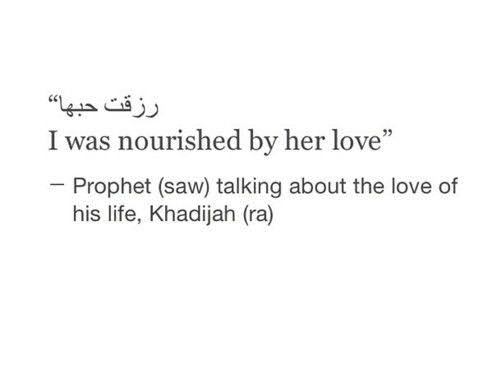
#quotes#love#poem#poetry#literature#convert to islam#islamic world#islamicquotes#islam#muslim#prophet mohammed
3K notes
·
View notes
Text
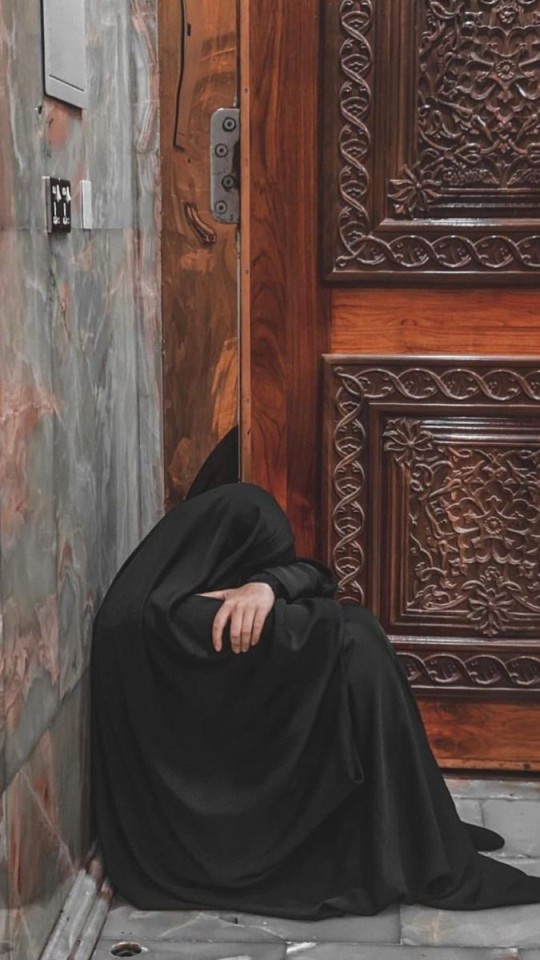
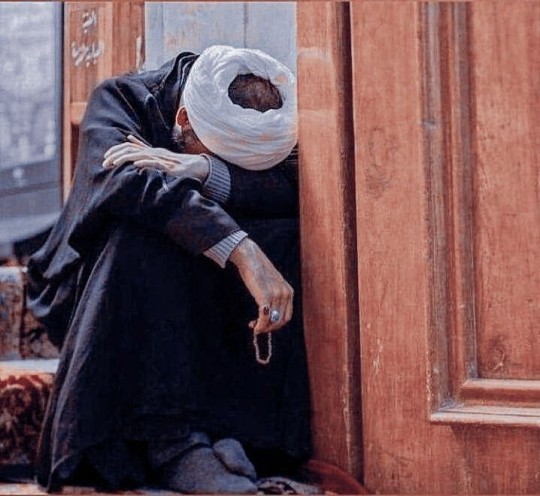

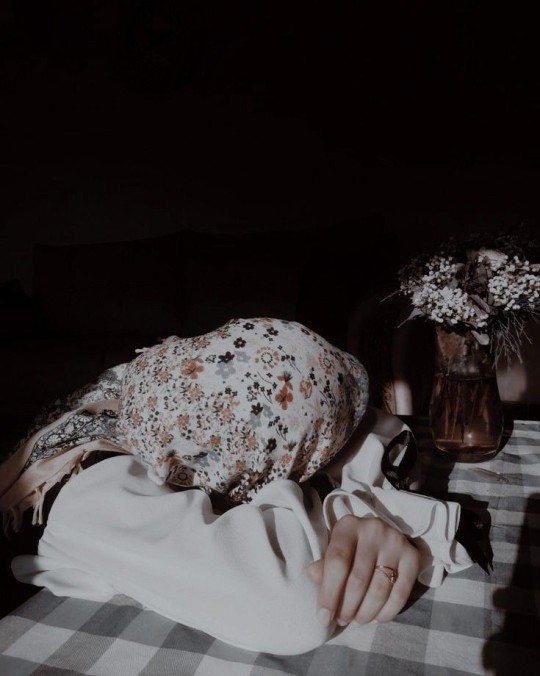
"كل تأخيرة فيها خيرة"
"Behind every delay, there's khayr (goodness)"
#dark acadamia aesthetic#dark academia#light academia#literary quotes#vintage#poetry#spilled thoughts#books & libraries#love poem#trending#classic literature#literature quotes#english literature#islamic#islamislove#muslim#islamicquotes#islamicreminder#love aesthetic#urdu quote#urdu lines#urdu literature#urduqoutes#urdu stuff#arabic lines#arabic literature#arabic quotes#arabic#flowers aesthetic#dark acamedia
3K notes
·
View notes
Text

#quotes#lit#literature#life quotes#arabic#arabic quotes#aesthetic#poetry#arabic literature#arabic poetry#arab#muslim#islamic reminders#islam
100 notes
·
View notes
Text

I really like making little drawings for my notes.
#mortuary science#study motivation#studyblr#academia#bookworm#dark academia#studyspo#dark acadamia aesthetic#literature#uni life#black academia#chaotic academia#academics#light academia#funeral director#funeral services#funeral#islamic#Islam#burial#grave
88 notes
·
View notes
Note
Yo, I saw your post about orientalism in relation to the "hollywood middle-east" tiktok!
How can a rando and university dropout get into and learn more about? Any literature or other content to recommend?
Hi!! Wow, you have no idea how you just pressed a button. I'll unleash 5+ years on you. And I'll even add for you open-sourced works that you can access as much as I can!
1. Videos
I often find this is the best medium nowadays to learn anything! I'll share with you some of the best that deal with the topic in different frames
• This is a video of Edward Said talking about his book, Orientalism. Said is the Palestinian- American critic who first introduced the term Orientalism, and is the father of postcolonial studies as a critical literary theory. In this book, you’ll find an in-depth analysis of the concept and a deconstruction of western stereotypes. It’s very simple and he explains everything in a very easy manner.
• How Islam Saved Western Civilization. A more than brilliant lecture by Professor Roy Casagranda. This, in my opinion, is one of the best lectures that gives credit to this great civilization, and takes you on a journey to understand where did it all start from.
• What’s better than a well-researched, general overview Crash Course about Islam by John Green? This is not necessarily on orientalism but for people to know more about the fundamental basis of Islam and its pillars. I love the whole playlist that they have done about the religion, so definitely refer to it if you're looking to understand more about the historical background! Also, I can’t possibly mention this Crash Course series without mentioning ... ↓
• The Medieval Islamicate World. Arguably my favourite CC video of all times. Hank Green gives you a great thorough depiction of the Islamic civilization when it rose. He also discusses the scientific and literary advancements that happened in that age, which most people have no clue about! And honestly, just his excitement while explaining the astrolabe. These two truly enlightened so many people with the videos they've made. Thanks, @sizzlingsandwichperfection-blog
2. Documentaries
• This is an AMAZING documentary called Reel Bad Arabs: How Hollywood Villifies A People by the genius American media critic Jack Shaheen. He literally analysed more than 1000 movies and handpicked some to showcase the terribly false stereotypes in western depiction of Arab/Muslim cultures. It's the best way to go into the subject, because you'll find him analysing works you're familiar with like Aladdin and all sorts.
• Spain’s Islamic Legacy. I cannot let this opportunity go to waste since one of my main scopes is studying feminist Andalusian history. There are literal gems to be known about this period of time, when religious coexistence is documented to have actually existed. This documentary offers a needed break from eurocentric perspectives, a great bird-view of the Islamic civilization in Europe and its remaining legacy (that western history tries so hard to erase).
• When the Moors Ruled in Europe. This is one of the richest documentaries that covers most of the veiled history of Al-Andalus (Muslim Spain). Bettany Hughes discusses some of the prominent rulers, the brilliance of architecture in the Arab Muslim world, their originality and contributions to poetry and music, their innovative inventions and scientific development, and lastly, La Reconquista; the eventual fall and erasure of this grand civilization by western rulers.
3. Books
• Rethinking Orientalism by Reina Lewis. Lewis brilliantly breaks the prevailing stereotype of the “Harem”, yk, this stupid thought westerns projected about arab women being shut inside one room, not allowed to go anywhere from it, enslaved and without liberty, just left there for the sexual desires of the male figures, subjugated and silenced. It's a great read because it also takes the account of five different women living in the middle east.
• Nocturnal Poetics by Ferial Ghazoul. A great comparative text to understand the influence and outreach of The Thousand and One Nights. She applies a modern critical methodology to explore this classic literary masterpiece.
• The Question of Palestine by Edward Said. Since it's absolutely relevant, this is a great book if you're looking to understand more about the Palestinian situation and a great way to actually see the perspective of Palestinians themselves, not what we think they think.
• Arab-American Women's Writing and Performance by S.S. Sabry. One of my favourite feminist dealings with the idea of the orient and how western depictions demeaned arab women by objectifying them and degrading them to objects of sexual desire, like Scheherazade's characterization: how she was made into a sensual seducer, but not the literate, brilliantly smart woman of wisdom she was in the eastern retellings. The book also discusses the idea of identity and people who live on the hyphen (between two cultures), which is a very crucial aspect to understand arabs who are born/living in western countries.
• The Story of the Moors in Spain by Stanley Lane-Poole. This is a great book if you're trying to understand the influence of Islamic culture on Europe. It debunks this idea that Muslims are senseless, barbaric people who needed "civilizing" and instead showcases their brilliant civilization that was much advanced than any of Europe in the time Europe was labelled by the Dark Ages. (btw, did you know that arabic was the language of knowledge at that time? Because anyone who was looking to study advanced sciences, maths, philosophy, astronomy etc, had to know arabic because arabic-speaking countries were the center of knowledge and scientific advancements. Insane, right!)
• Convivencia and Medieval Spain. This is a collection of essays that delve further into the idea of “Convivencia”, which is what we call for religious coexistence. There's one essay in particular that's great called Were Women Part of Convivencia? which debunks all false western stereotypical images of women being less in Islamic belief. It also highlights how arab women have always been extremely cultured and literate. (They practiced medicine, studied their desired subjects, were writers of poetry and prose when women in Europe couldn't even keep their surnames when they married.)
4. Novels / Epistolaries
• Granada by Radwa Ashour. This is one of my favourite novels of all time, because Ashour brilliantly showcases Andalusian history and documents the injustices and massacres that happened to Muslims then. It covers the cultural erasure of Granada, and is also a story of human connection and beautiful family dynamics that utterly touches your soul.
• Dreams of Trespass by Fatema Mernissi. This is wonderful short read written in autobiographical form. It deconstructs the idea of the Harem in a postcolonial feminist lens of the French colonization of Morocco.
• Scheherazade Goes West by Mernissi. Mernissi brilliantly showcases the sexualisation of female figures by western depictions. It's very telling, really, and a very important reference to understand how the west often depicts middle-eastern women by boxing them into either the erotic, sensual beings or the oppressed, black-veiled beings. It helps you understand the actual real image of arab women out there (who are not just muslims btw; christian, jew, atheist, etc women do exist, and they do count).
• Letters of Lady Mary Wortley Montagu. This is a feminist travel epistolary of a British woman which covers the misconceptions that western people, (specifically male travelers) had recorded and transmitted about the religion, traditions and treatment of women in Constantinople, Turkey. It is also a very insightful sapphic text that explores her own engagement with women there, which debunks the idea that there are no queer people in the middle east.
---------------------
With all of these, you'll get an insight about the real arab / islamic world. Not the one of fanaticism and barbarity that is often mediated, but the actual one that is based on the fundamental essences of peace, love, and acceptance.
#orientalism#literature#arab#middle east#islam#feminism#book recommendations#reference#documentary#western stereotypes#eurocentrism#queer#queer studies#gender studies#women studies#cultural studies#history#christianity#judaism#books#regulusrules asks#regulusrules recs#If you need more recs#or can’t access certain references#feel free to message me and I’ll help you out!
60 notes
·
View notes